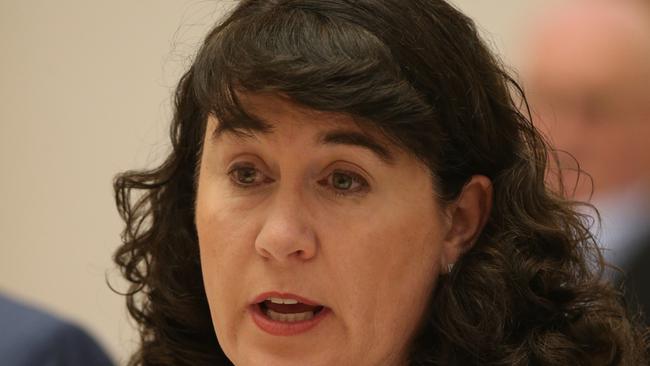CBA denied heart attack claims, then misled ombudsman
CommInsure denied a heart attack victim’s claim using outdated medical definitions, then covered up advice from a doctor.

Commonwealth Bank denied the claim of a life insurance customer who suffered a heart attack by using out-of-date medical definitions and then misled the Financial Ombudsman Service by covering up advice it had received from a doctor when the customer complained.
CBA also ignored the ombudsman’s findings that it should apply an updated medical definition to the claim, in a series of manoeuvres revealed by the royal commission which the corporate watchdog labelled “serious misconduct”, but against which it took no legal action.
The royal commission also revealed how CBA routinely ignored the medical advice of its own employed doctors, including its chief medical officer Dr Benjamin Koh, who blew the whistle on the company’s misconduct in 2016, to update its definition of heart attack, which it routinely rejected because it would cost the company more money in claims.
In another bruising day for the nation’s largest bank, Kenneth Hayne’s inquiry heard how CBA’s life insurance division CommInsure supplied partly blacked-out documents to the Financial Ombudsman Service when the customer still had their heart attack claim knocked back, despite the company backdating an update of its medical policies. CommInsure had failed to update its policy in line with medical opinion for a decade.
The redacted information supplied to FOS concerned a doctor’s medical opinion that found in favour of the claimant, but when FOS asked for an explanation for what information was blocked out by CommInsure, the company did not respond.
When FOS found in favour of the customer, CBA rebuked the ombudsman and said it did not have the jurisdiction to make such a finding.
Former CommInsure boss Helen Troup admitted the company should have accepted the ombudsman’s determination and that the company broke section 7.2 of the FOS terms of reference, which requires companies provide the ombudsman with full information.
FOS referred the matter to the Australian Securities and Investments Commission which found CBA’s “serious misconduct” was likely to have misled the ombudsman, but it took no action other than a warning.
Ms Troup told the hearing CommInsure was worried a legal finding that it was applying the wrong medical definitions could have led it to paying out more previously denied claims.
“Should (CommInsure) have acknowledged that CBA had not been open and frank in its dealings with FOS?” senior counsel assisting the commission, Rowena Orr, QC, asked. Ms Troup responded: “Yes”.
“Do you accept the decision to redact the medical decision to FOS was a decision that fell below community standards and expectations?” Ms Orr asked.
“Yes,” Ms Troup responded, acknowledging the manoeuvre would have also delayed the resolution of the complaint.

CommInsure was the subject of a series of critical reports in early 2016 which centred on the company’s practice of denying claims on outdated medical definitions and with dubious medical advice.
Before the reports, CBA had not updated its definition of heart attack since 2005, but after the news broke it backdated the definitions to mid-2014, which it did on the basis of the date of the most recent edition of the product disclosure statement. This was despite CBA’s head of life product and strategy recommending a change to 2012.
CommInsure’s chief medical officer William Monday recommended a backdating to the “universal” 2007 definition because its current definition could discriminate against female customers, and the current definitions required production of the protein troponin levels 20 times higher than usual.
The royal commission heard ASIC deputy chair Peter Kell raised concerns with the company that there was no basis for this backdated date, pointing to a joint medical publication in 2012 that established the cut-off level for certain proteins produced in the human body following a heart attack, which is used to test for whether a patient has suffered such an event.
Board minutes shown to the hearing revealed originally CBA chose the 2014 date as it fell in “the middle of the range of dates when those competitors who have upgraded their definitions did so”, but then buckled to ASIC’s requests for a 2012 date after it worked out it would only cost $2.5 million -- lower than the original $15m estimated cost.
“Do you accept that it was a commercial decision that had adverse consequences for CommInsure customers?” Ms Orr asked. “Yes I do,” Ms Troup said.
Although ASIC investigated CommInsure for its improper claims handling, the regulator found no contraventions of the law but a range of conduct that was of serious concern. In particular, CBA’s use of outdated definitions was “not a breach of the duty of utmost good faith” but ASIC was concerned it fell short of community expectations.
Claims-handling practices are currently exempt from financial services conduct laws which require efficiency, honesty and fairness in company dealings — an exemption ASIC is pushing hard for the government to overturn.
Despite the obvious concerns of the regulator, the findings were celebrated by CBA’s public relations spinners. In an email to CBA’s retail products boss, Clive Van Horen, Ms Troup said: “If only I could get the same outcome for (consumer credit insurance)” -- a reference to CBA’s eventual program where it had to refund $16 million to up to 140,000 people after sold them junk insurance.



To join the conversation, please log in. Don't have an account? Register
Join the conversation, you are commenting as Logout